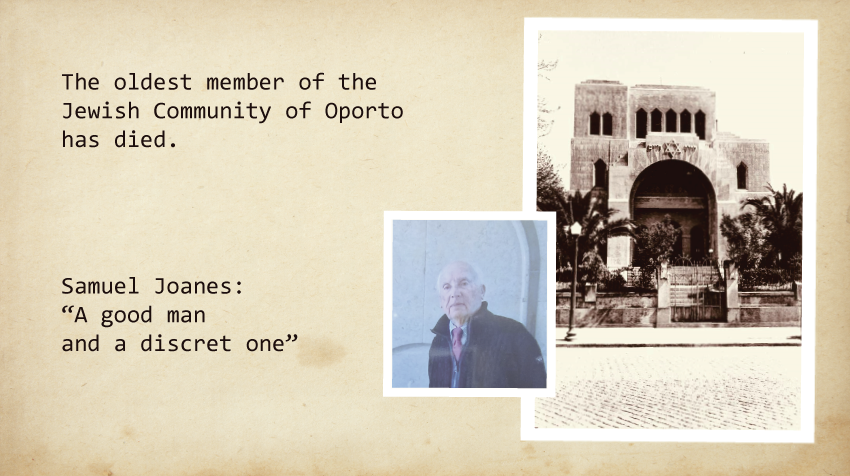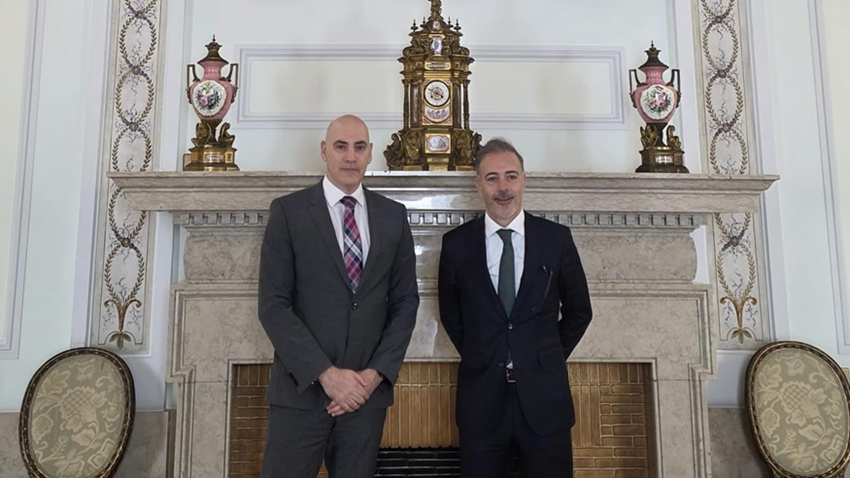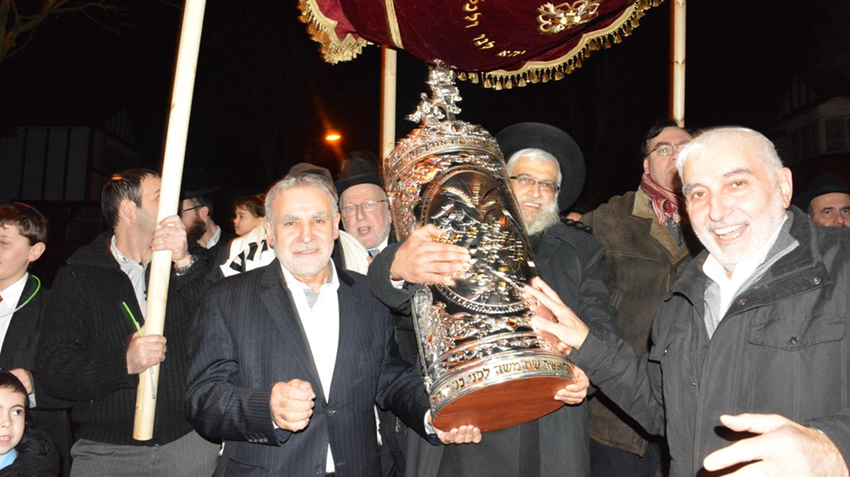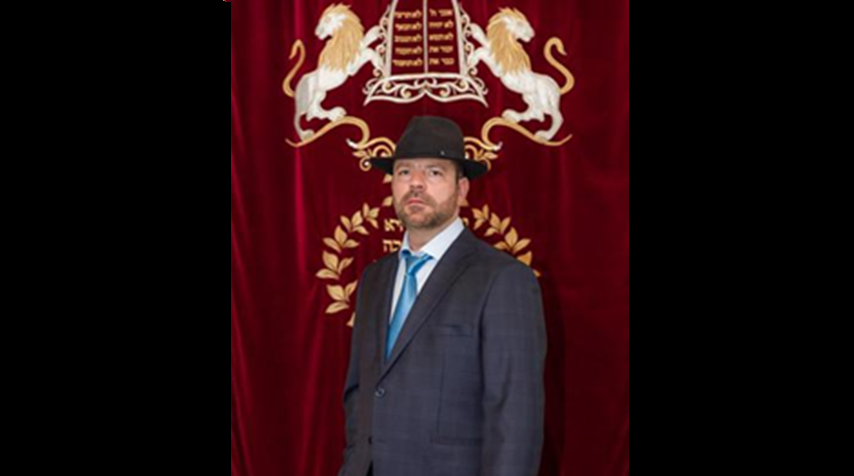Samuel Joanes or, as he preferred, Samuel Yanovsky, was a timid man, who did not speak much. If he was inspired by a subject, the conversation would flow in full spate. Israel, Judaism, Oporto, downtown Lisbon where his father had his office, the economy, the Shoah that killed aunts and uncles, are examples of some of the subjects that made him come out of his shell. Made him become emotional.
Throughout his life there was one aspect that could not be denied him: he was discreet, hugely discreet, always as distant as possible from the limelight. He was known in the Jewish community as Samuel Joanes, although his father’s surname was originally Janowski, or Yanovsky, a name that was later changed to Joanes when his father reached Portugal, having come from Lunna, then in Poland and now in Belarus.
Isaac Janowski was a founding member and a member of the Mahamad of the Jewish community of Oporto. Yitchok-Yitche Janowski-Joanes, who died of a heart attack in 1973, emigrated to Portugal at the dawn of the 20th century. In this country, he started a successful business in precious gems, initially in Oporto and then in Lisbon. Extremely generous, compassionate and trustworthy, with his wife Nusia Terlo they had two sons, Alexandre and Samuel Joanes, who were born in Oporto, the city chosen by so many Ashkenazi Jews fleeing the terror of antisemitism, a terror that is timeless and today still persecutes and kills us.
In his teens, the family settled in Lisbon, on Avenida Álvares Cabral, near the Shaare Tikvah Synagogue, where Isaac Joanes was Parnas.
Samuel studied abroad, settled in Switzerland and married a doctor. They had two children. He came on frequent visits to his mother, a much loved figure in the Israeli community of Lisbon. Samuel returned to Portugal, and divided his work in banking and real estate between Geneva, Olhos de Água and Quinta da Marinha.
As opposed to what he once said, that he would never go on the board of the community, he became the treasurer of the Jewish Community of Lisbon under the presidency of his friend Samuel Levy. It was 2002, the year the community was commemorating the 100th anniversary of the laying of the cornerstone, followed two years later by its centenary, and on both occasions the ceremonies were quite unforgettable.
Long before death gave him notice, he made a donation for a plaque in his parents’ name to be placed in one of the rooms of the Shaare Tikvah Synagogue. He encouraged patronage. He provided aid and offered utmost discretion.
In the last seven years, he grew closer to the community where he was born: in Oporto. He was up-to-date on all matters and developments and wished the community to grow stronger all the time.
Quite often, David Garrett travelled to Algarve to take him photographs and drawings of community projects. The conversation often turned to memories of his father Isaac. Samuel was preparing a photograph album of the 1920s and 30s to give to the Jewish Museum of Oporto. Sadly, however, according to his wife Mile, Samuel accidentally threw the album away when he decided to have a complete clear out of his study in Albufeira. The priceless album was also thrown out.
Lately, no longer in Lisbon but still close to his friends, Samuel Joanes’ Jewish life in Portugal was restricted to being present in activities at the house of Rabbi Eli Rosenfeld, and later at Bet Chabad in Cascais, a beacon of Portuguese Judaism, as he said when I told him how pleased I was to see him there.
Yanovsky, as he always wanted David to call him, was one part of the collective decision by the Jewish community of Oporto to give a substancial donation to build Bet Chabad.
He died in the same month that he was born, aged 92.
Baruch Dayan HaEmet.



































